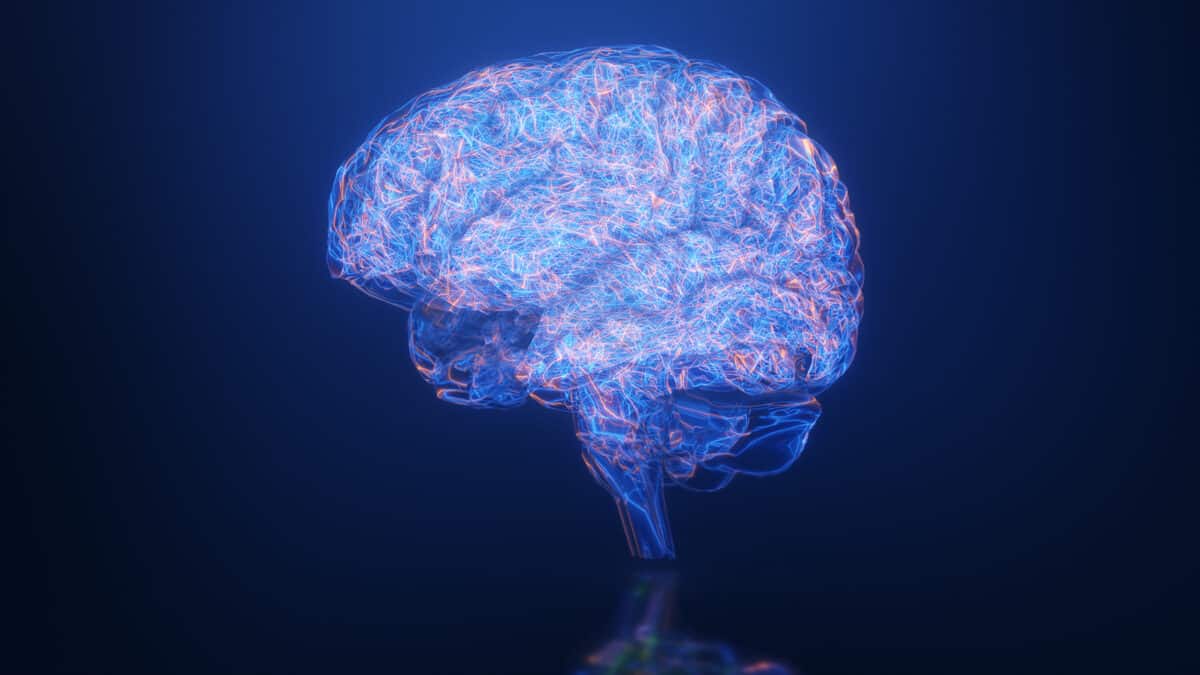Do you find yourself struggling to keep up with conversations in restaurants or at parties? Do you often say “huh” or “what” in these settings? These are common signs of hearing loss, a medical condition that impacts nearly 1 in 6 people. Experiencing difficulties hearing speech in environments that are noisy is a common symptom of hearing loss. These spaces create additional noise for the brain to process and filter through which makes it tougher to hear. But recent research shows that there are actually ways the brain can be trained to better understand speech in these settings, known as speech-in-noise comprehension.
Hearing & the Brain
To understand how the brain can be trained to hear speech in noise, it is important to know how hearing works. The auditory system is the sensory system for hearing and it consists of the ears and brain which work together to absorb and process speech as well as sound. There are specific areas of the brain that are responsible for auditory processing and speech comprehension. This includes the temporal lobe, broca’s area, and wernicke’s area. The brain receives auditory signals from the inner ear and processes these signals. This processing includes assigning meaning to these signals which is what allows us to understand what we hear.
Hearing loss can affect the brain in a few ways that can even lead to cognitive decline. Research shows that these areas can shrink due to inactivity. Because these areas receive less auditory information, they become inactive which can lead to a loss of neurons and restructure neural networks. Known as brain atrophy, this produces hearing loss and affects brain health. This research also shows that hearing impacts the brain which opens space to then investigate if the brain can be trained to hear better.
Link Between Brain Exercises & Improved Hearing
A growing field of research focuses on the impact of brain exercises on hearing. Studies show that performing brain exercises can actually improve one’s capacity to hear speech-in-noise. A significant study that explores this link was performed by researchers at the Massachusetts Eye and Ear Infirmary. To assess how brain exercises can improve speech-in-noise intelligibility, researchers developed this study which included 24 participants ( average age was 70) who had mild to severe hearing loss. These participants wore hearing aids for an average of 7 years. They were split into two groups that spent 3.5 hours a week, for a total of 8 weeks, playing a game:
- Group 1: played a game specifically designed to work on their ability to follow conversations. This required paying attention to subtle auditory changes as they navigated the game.
- Group 2: the control group also played a game but this game was not designed to improve speech-in-noise hearing.
People in both groups spent 8 weeks playing these games and researchers found that participants in group 1 correctly identified 25% more words in spoken sentences that were communited in background noise that continued to increase in volume. This finding highlights a significant improvement in capacity to hear and process speech in noise that was increasing.
Researchers suggest that engaging in brain exercises can improve speech-in-noise hearing in a few major ways. Specific brain exercises can train the brain to listen, detect, and respond to changes in speech while there is background noise. Consistent engagement in these exercises strengthens what experts call neuroplasticity. Neuroplasticity describes the brain’s ability to develop new neural connections which increases and supports capacity to carry out cognitive functions like processing auditory information.
Brain Exercises that Strengthen Hearing
There are brain exercise programs that you can access to increase your speech-in-noise intelligibility. These programs focus on training the brain to hear speech in noise and include:
- LACE: this brain exercise program was created by audiologists at the University of California San Francisco. It is designed to improve speech comprehension in environments with increasing levels of background noise.
- cleARWorks Ears: this training program evaluates cognitive skills and focuses on improving speech intelligibility skills in both noisy and quiet environments.
- Angel Sound: this is specifically designed for people with auditory disorders. It is a program that involves identifying sounds and speech through interactive modules.
Practicing these exercises can help transform your hearing in everyday life. Contact us today to learn more about brain exercises that can improve your hearing health.

